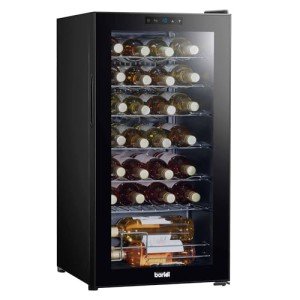10 Things We All Hate About Fridge To Buy

The Ultimate Guide to Choosing the Right Refrigerator for Your Home
Introduction
Choosing a refrigerator is a considerable choice for any family. With a wide variety of choices readily available, recognizing the best design for your needs can be intimidating. This guide will explore numerous refrigerator types, necessary features, and pointers for making an educated purchase. Whether you are moving into a new home or just aiming to replace an old design, this info will assist in choosing the fridge that best suits your way of life.
Types of Refrigerators
When looking for a refrigerator, comprehending the various types readily available can simplify the choice process. Here's a breakdown of some typical refrigerator types:
| Refrigerator Type | Description |
|---|---|
| Top-Freezer | One of the most standard designs, with the fridge area on the top and the freezer listed below. |
| Bottom-Freezer | Features the fridge on top for simple gain access to, with the freezer located underneath. |
| Side-by-Side | Contains 2 vertical compartments; one for the fridge and one for the freezer, enabling more organization. |
| French Door | Combines a bottom freezer with double fridge doors, providing adequate area and contemporary aesthetics. |
| Compact | Smaller size suitable for limited spaces or secondary kitchen areas. |
| Smart Refrigerator | Equipped with sophisticated innovation for connection and convenience, consisting of touch screens and internal cams. |
Selecting Your Refrigerator Type
- Space Availability: Measure the area where you prepare to put the refrigerator, considering door openings and clearance.
- Storage Needs: Think about your normal grocery shopping habits and meal preparation.
- Design Preferences: Consider the kitchen area's looks-- contemporary, standard, or minimalist.
Secret Features to Consider
Apart from type, different functions make refrigerators more functional and easy to use. Here are essential factors to consider:
- Energy Efficiency: Look for Energy Star-rated models that consume less electrical power, saving you cash in the long run.
- Capacity: Measured in cubic feet, guarantee the fridge's capacity meets your home needs. Buy Fridge Online of thumb is 4-6 cubic feet per grownup.
- Adjustable Shelving: Shelving that can be moved or modified to accommodate larger products can be extremely beneficial.
- Humidity Control: Many refrigerators included crisper drawers that control humidity, improving the longevity of vegetables and fruits.
- Water and Ice Dispensers: Added benefit for those who require easy access to drinking water and ice.
- Smart Home Integration: Consider if you want a fridge that connects with your clever home devices for added functionality.
Benefits and drawbacks of Refrigerators with Ice and Water Dispensers
| Pros | Cons |
|---|---|
| Benefit of having ice and water readily offered | Prospective for leakages or upkeep concerns |
| Conserves area on kitchen counters for water pitches | Higher initial purchase cost |
| May increase home resale value | Requires access to plumbing |
Budgeting for Your Refrigerator
Establishing a budget plan is vital when picking a refrigerator, as costs can vary significantly based on brand, type, and features. Here's a breakdown of the normal price ranges:
| Refrigerator Type | Rate Range (GBP) |
|---|---|
| Top-Freezer | ₤ 400 - ₤ 1,000 |
| Bottom-Freezer | ₤ 600 - ₤ 1,500 |
| Side-by-Side | ₤ 800 - ₤ 2,500 |
| French Door | ₤ 1,500 - ₤ 3,000 |
| Compact | ₤ 150 - ₤ 800 |
| Smart Refrigerator | ₤ 1,500 - ₤ 5,000 |
Tips for Sticking to Your Budget
- Do Your Research: Compare prices across various sellers.
- Look for Deals: Shop during holiday sales or clearance events.
- Focus on Features: Determine which features are necessary vs. great to have.
Frequently Asked Questions (FAQs)
1. How long do fridges typically last?
A lot of refrigerators have a lifespan of around 10-20 years, depending upon use and upkeep.
2. Should I invest in a clever refrigerator?
If you prioritize connectivity and benefit, wise models may be worth it. However, consider the higher upfront expenses and prospective maintenance.
3. What upkeep does a refrigerator require?
Routine cleansing of coils, inspecting door seals, and defrosting freezers (if essential) are vital for keeping a refrigerator's performance.
4. How do I know if I'm picking the best size for my refrigerator?
Consider household size, storage needs, and offered kitchen area space. Follow the basic standard of 4-6 cubic feet of space per adult.
5. Are energy-efficient fridges worth the investment?
While preliminary expenses may be greater, energy-efficient models can save you cash on energy expenses in time.
Choosing the best refrigerator involves evaluating various aspects, including type, features, rate, and your particular needs. Comprehending the distinctions between models and considering factors such as energy efficiency will help you make an informed choice. By following this guide and making use of the supplied comparisons and pointers, you will be fully equipped to find a refrigerator that matches your kitchen and enhances your every day life.
In conclusion, the right refrigerator not only keeps your food fresh but also matches your home's aesthetic appeals and performance. Take your time in making this crucial decision to guarantee you pick a model that best serves your needs for many years to come.

